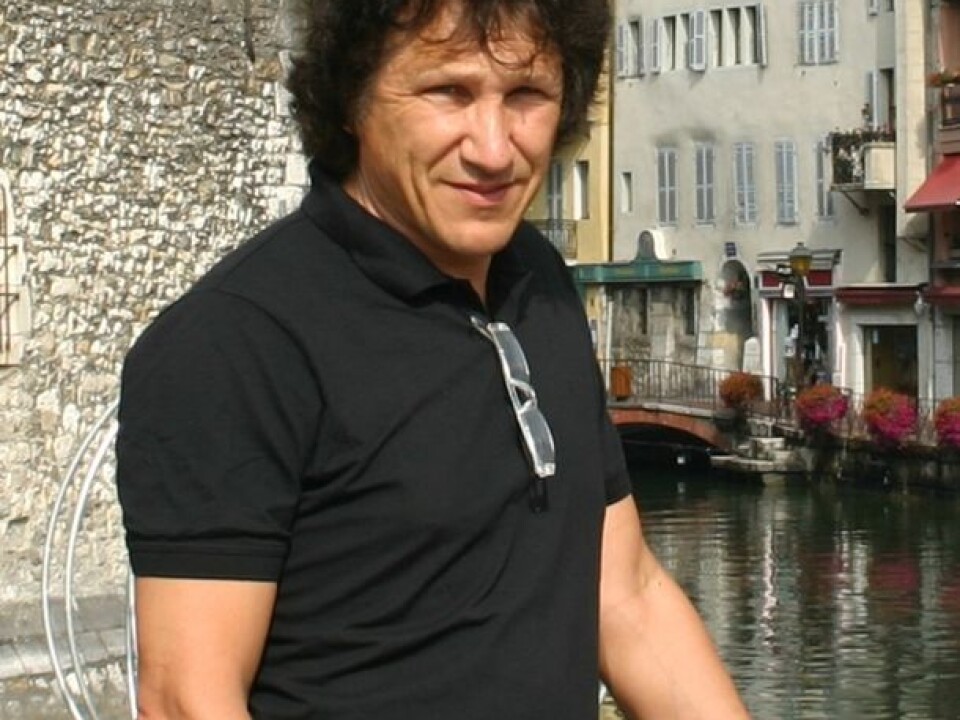
Wanted: Artistic mathematicians
Apple is the successful convergence of tough mathematics and consumer empathy. Researcher fears the consequences of artistic souls turning their backs on math.
Denne artikkelen er over ti år gammel og kan inneholde utdatert informasjon.
“Parents do their math-weary children a disservice by comforting them with ʽI understand that you don’t like math – nobody in our family is good at that sort of thing,’” says Helge Brovold.
He is writing his doctorate on young people and scientific subjects at the Renate Centre of the Norwegian University of Science and Technology.
“There doesn’t have to be any contradiction between being creative and a fun-loving dreamer on the one hand, and being good at math on the other,” he says.
Brovold refers to corporation behind iPod and iPhone as an example that brains with diverging focuses can yield great results.

“Apple has made technology accessible, fun, rather compassionate and nearly beautiful,” he says.
Maybe you are an Einstein?
The world’s most well known genius of all time, the physicist Albert Einstein, was said to have been poor at math as a child, even to have failed. This is most likely not true, but at one point he expressed a dislike of math.
“He had assistants doing his calculations,” says Brovold. Einstein's conclusions were right, but in some cases he made mathematical errors that needed to be corrected. Einstein sought formulas that could be verified by experiments, rather trying to bend the world to match his formulas.
He feels that many fall off the bandwagon because their teacher launches equations like power equals force times speed instead of beginning with something more captivating.

“If you are the creative and intuitive type, you contemplate great questions as Einstein did: How does the universe work? Is there an underlying pattern or a meaning that adheres to universal rules?
“Then it isn’t all that easy to embrace dry definitions like: A force is the interaction between two bodies,’” he says.
Fearing math
A familiar scenario for many: An algebra problem is on the blackboard but you forget how to solve it and jump to the conclusion there’s no use in even trying.
Brovold thinks the result can be that many opt for escape as a defence mechanism, because math and sciences often require stringent instructions and rules.
“Some girls in particular start thinking this is scary stuff. They rely on their friends for confirmation that math is horrible. They seek solace in being in the same boat − ʽI’m dumb, you’re dumb.’ But it doesn’t have to be so bad,” he says.
Brovold advises everyone to choose fight instead of flight as a strategy. Your issue with self-confidence is what keeps you from understanding math.
“If everyone who is uncertain about something raises their hand instead and says: ʽRun through that one more time – I don’t understand’, then most pupils would get a lot further. Math teachers also need to become more patient and willing to repeat.”
Boys and girls have different needs
Girls are not poorer at math than boys – lots of them are more mature and have an edge with regard to the way teaching is conducted,” asserts Brovold.
School subjects are usually taught by a teacher who lectures while pupils listen and observe. Boys are generally more activity-oriented in the learning process and could benefit from more experimentation and cramming, according to Brovold.
Boys are concerned about mastering things.
"The point of departure for many is that they already are pretty good. If they run into a tough obstacle, they might tend to think in terms of it being the problem there’s something wrong with, says Brovold.
He thinks that boys more easily think along the lines of: ʽI can’t be bothered, what am I ever going to use this for?’”
In such cases concrete assignments linked to an interesting problem or hobby can help boys’ motivation.
“Boys also often have trouble with self-discipline and require better follow-ups,” he says.
The problem for many girls Brovold thinks is that they can tend to be too self-judgemental and are constantly undermining their own self-confidence and self-respect.
“Girls could benefit from more group projects and a more popular scientific approach to math and science subjects, where discussions and mutual bewilderment are on the agenda. Like how to argue through quantum physics that a cat can be both dead and alive at the same time,” he says.
Don’t drop math
Brovold dreams of a world where empathetic and creative persons use their capabilities in combination with math and science subjects.
“Think if in the technological and mathematical subjects we had even more of the people who want to save the world and help those who are ill or underprivileged! This would be a huge boon to society.”
He adds:
“And think about Albert Einstein who said: ʽIt’s not that I’m so smart, it’s just that I stay with problems longer.’”
Translated by: Glenn Ostling































